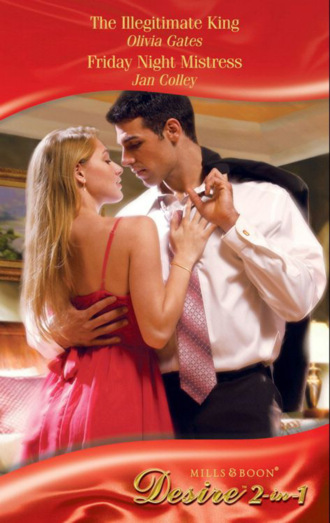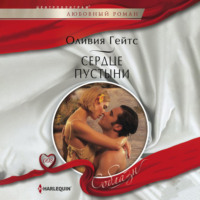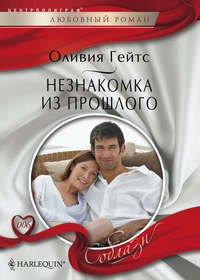
Полная версия
The Illegitimate King / Friday Night Mistress
But now he finally would. One way or another.
He’d teach her a lesson. Many lessons. He’d take her down a few dozen pegs, and he’d revel in every one.
He braced his arms against the balustrade, cast his gaze into the distance. The sun’s gold was starting to deepen as the star quickened its descent toward the endless expanse of liquid turquoise and emerald that was the southern Castaldinian Sea.
Another rush of bitter anticipation tumbled and sprayed through his system like the waves did on the shore. He wasn’t here only for the spectacular vista the tower of his mansion afforded him. This was also the best vantage point from which to view the winding road over which she’d be brought to him…
Everything seemed to dim as the last three words replayed in his mind like a distorted old recording.
Brought to him. Not coming to him of her free will, unable to wait to see him, as she had in too many dreams to count.
What would he have felt if she’d been rushing here with hunger in her eyes, with longing on her lips?
If only…
His lips compressed as he tore his eyes away from the road and blindly roamed the view he could no longer see.
No. No if onlys. She’d made her choice that first night. Had reinforced it countless times throughout six interminable years.
Even if she changed her mind now, for whatever reason, it would be too late. Now only one thing mattered. That she had no choice. That there was no way she could reject him again. And he intended to savor every second of her downfall, starting—he snapped another look at his Rolex—ten minutes from now.
He pushed away from the balustrade, swung around.
Time to put the finishing touches to his plan.
“Until then.”
The words, spoken like a pledge, a prophecy, in the lethal tone of a dangerous man, reverberated inside Clarissa’s head. They had done so for six years now.
Twenty-four hours ago, she’d found out that “then” had arrived. Ferruccio Selvaggio had her cornered.
She exhaled and gazed through sunglasses and rioting hair at the vista rushing by as the limo zoomed over the road that snaked parallel to the shore.
She knew the sun was turning flame orange and speeding on an intercept course with the sea, that the horizon would be changing into a thousand hues and the waters would be starting their transformation from aquamarine to royal blue.
She saw none of it. Her vision was turned inward, where there was nothing but gray chaos.
Calm down. Breathe.
She carefully drew in a stream of the fresh sea air that buffeted her face. Then again. And again.
And nothing. Taking one breath at a time wouldn’t restore any measure of calm. It hadn’t since yesterday. Since her father had made her cut short her first official mission to the States to give her the news. The shock of her life.
She thought she’d known the limit of her father’s desperation to find himself a crown prince after his stroke. He’d proven her wrong.
The crown of Castaldini was by law not passed from father to son, but rather earned by merit. With the approval of the royal council, the current king would choose his successor from the royal D’Agonstino family—a man of impeccable reputation, sturdy health and no vices, solid lineage, a leader with character and charisma, and above all, a self-made success of the highest order.
She’d been the only one who hadn’t been stunned when he’d announced his first candidate. Leandro, the prince whom eight years ago her father had declared renegade, stripped of his nationality and exiled. She’d thought Leandro the wisest choice of any candidate for the crown. It had been time to forget grievances and think of Castaldini’s best interests. But when her father had wrestled the Council into making the offer, Leandro had done the unthinkable. He’d turned the power and responsibility down.
And her father had dropped another bomb. He had another even more impossible candidate. Her oldest brother, Durante. And in an undreamed of precedent in Castaldinian history, he’d gotten the Council to amend the most fundamental part of the kingdom’s constitution to make his son eligible for the crown.
She’d never been so excited. She’d always thought how unfairly absolute the laws of succession were, that while they protected Castaldini from unsuitable heirs, in Durante’s case they were depriving it from having its best king ever. But the Council had voted, and the impossible had become possible.
Then Durante had come back with his bride-to-be, and Clarissa had even dared to hope that he and her father would work out their rift. Everything had looked like it would have a perfect happy ending for her family and for Castaldini.
Again the impossible had happened. They had sorted out their rift, but Durante had turned down the succession.
She’d tried to speak to him, but he hadn’t been available for discussion as he’d prepared for his wedding and disappeared with his bride on an extended honeymoon. Clarissa had gone to the States, her father assuring her that he was working on securing the next candidate, the one he believed most suited to the job despite there being an even more insurmountable barrier to overcome to make the Council agree.
She hadn’t been able to imagine who could possibly be better than Leandro or Durante. Then the king made her cut her mission short to drop the biggest bomb of all.
He’d gotten the Council to make an even more incredible amendment, allowing the king to extend another offer of the crown of Castaldini.
To Ferruccio Selvaggio.
She still didn’t know how she hadn’t collapsed in a heap of shock and confusion upon hearing that.
From what she’d heard in the media about Ferruccio, he was a man with no origins. All that was known about his parentage was that he’d been given up for adoption in Napoli when he was born.
But he’d never been adopted. By the time he was a difficult six-year-old, he’d been placed in a foster home, the first of a dozen, until he ran away from the last one at age thirteen. He’d chosen to live the harshest of lives on the streets of Italian coastal cities and in Sicily and Sardinia rather than return to the system. Over the next two decades, he educated himself extensively and worked his way up to the highest echelons imaginable.
When his status had solidified, he’d come to Castaldini. Since then, he’d been a recurring figure in her father’s court, and a constant one in her dreams and nightmares. Worse, his businesses in the kingdom now comprised almost one quarter of the national income.
When she’d told her father that that didn’t make him king material, that Castaldini couldn’t just waive the laws that had made it unique in the world for eight hundred years to have a king who only answered the financial criterion of the ancient laws of succession who wasn’t a D’Agostino or even a Castaldinian, her father had dropped the biggest bomb yet.
Ferruccio was a D’Agostino.
The king had been entrusted with this fact before Ferruccio had first come to Castaldini. He’d told a select few, among them Durante and Paolo, her brothers; but knowing the delicate dynamics involved, he’d chosen not to divulge Ferruccio’s parents’ names so that the house he belonged to wouldn’t suffer the repercussions of exhuming buried secrets.
After his stroke, he’d given the Council his word as proof of the fact. They’d argued that illegitimacy was by far the worst breach of the ancient laws that he’d asked them to commit in his quest to find the next king. They couldn’t accept a bastard contender for the crown. But the king had made a solid case for Ferruccio otherwise.
Ferruccio was everything the king must be, he said, even more so than his first two choices. He was even more radically self-made, as his rise had been against what should have been insurmountable odds. He was a leader by nature, his shipping empire the largest in the world and his political powers farreaching. At last the Council succumbed and made the offer.
Contrary to Durante and Leandro, Ferruccio had been instantly amenable to discussing that offer. But he’d refused to give a word of either consent or refusal. Before he would give either, he had terms to negotiate.
He would negotiate with only one Council member. Her.
Clarissa closed her eyes again on another eruption of fury.
How dare that arrogant jerk!
Castaldini was not only acknowledging him, it was offering him the incalculable honor and privilege of becoming its future king, and he had terms? What more did he want? A binding contract adding the island to his real estate acquisitions?
Not that that was too far-fetched. Among her shocking discoveries, she found out that he’d long ago purchased a huge chunk of Castaldinian soil. Three hundred square miles of the six thousand that made up the island. It didn’t matter that this was the south eastern area that was said to be unreclaimable for being too mountainous, it was still five percent of the whole damn kingdom.
And why negotiate with her? She was the most junior Council member. Wasn’t really even that, yet. She’d been made a member the day before she embarked on her trip to the States, a training mission that had been cut short, too.
But she knew why.
Now that Ferruccio was in a position of unprecedented power, he wanted to lord it over the D’Agostinos, the royal family, maybe over the whole nation he felt had spurned him. He wanted to lord it over her, too, the only female, she believed, who hadn’t fallen flat on her face at his approach, quaked at his every glance, melted when he beckoned.
Well, she had…But he didn’t know that. She hadn’t let him know, and she thanked God for that daily. She hated to think what would have happened if she hadn’t been forewarned of his true nature and intentions and had succumbed to the dictates of her desires that first time he’d expressed interest.
His ruthless reputation proclaimed him to be an overendowed, overprivileged, overeverything boor who believed people’s—especially women’s—only use was to throw themselves at his feet, follow his orders and satisfy his appetites before being discarded. He’d lost no sleep over her rejection, as evidenced by the constant stream of interchangeable hotties who’d been flitting in and out of his bed ever since.
Not that he’d taken no for answer. Her dismissal seemed to have roused the conqueror in him, and he’d continued to approach her despite her consistent refusals.
After she dared to decline his first invitation, she’d seen him everywhere she went during the week he spent on Castaldini. She hadn’t been able to breathe until he left. Then he’d come back within a month to issue another invitation and had continued to do so whenever he returned, and even more when he hadn’t. He kept asking her to hop over to Milan, Monaco or Madrid, to join him for a meal, Hong Kong or Tokyo or Rio De Janeiro to join him for the weekend, among a party or alone.
She turned him down every time, with one excuse or another, struggling to observe formal politeness and neutrality, since he was such an important man to her father and Castaldini.
But he’d left her that first night with the augury that there would come a time when she’d have no option but to do his bidding.
That time was finally here.
She wondered how he’d justified his demand to her father. He must have said something convincing, or her father wouldn’t have been so matter-of-fact about it.
So he’d finally have his laugh. That had to be his objective. If there’d been a shadow of a doubt that he’d been pursuing her to freshen his image with a coat of legitimacy, it had evaporated. He was a D’Agostino, would be proclaimed the future king of Castaldini. There was no higher status or recognition he could aspire to.
The limo slowed down, and with it her streaking thoughts.
That only made her anger gain momentum again. She’d been fuming since he’d sent his aides to summon her. She’d grudgingly let them escort her to his jet. She hadn’t found him onboard as she’d expected, had been stunned to find the jet taking off, whisking her away to his private part of the island without so much as an explanation or request for her token agreement.
And here she was. Approaching the only man-made construction and landscaping she’d seen in the last twenty minutes since the jet had landed at what was clearly a private airport.
There were no fences anywhere. The limo passed through a gate made by an opening in a row of towering cypress trees.
As they cruised down the driveway she realized the estate must cover hundreds of acres and the mansion at its middle must be over thirty thousand square feet. It sprawled in many levels, crouching over the highest point in the landscape, surrounded by manicured, mature gardens that on one side gave way to a mile-deep, golden beach, on another to the terrain where the road ended, and on the remaining sides to densely verdant groves ripe with fruit.
It felt like she was forging deeper into a tranquil paradise as they passed acres of oranges and tangerines, the fresh, tangy scent filling her.
The moment they stopped at the beginning of a stone path, she disembarked, more than usual unable to bear the pomp of ceremony.
Her chauffeur hurried to lead her on the path flanked by magnificent palms and a plethora of other Mediterranean flora to the entrance of the mansion. Her eyes wandered over its neo-Gothic stone facade as they neared. It looked as if it had been built centuries ago and transported through time the moment the last touch had been applied. The most characteristic features were the arched motif to all its windows, passageways and doors and the central tower.
She squinted up at the elaborate coat of arms that decorated the tower’s top. She wondered what it was, if it had any significance, or if it was just something that had appealed to him. It did bear resemblance to the D’Agostino family’s crest. Had he meant it that way, to express his affiliation, yet not wanted it to be the same, as he considered himself an outsider?
Her futile conjectures came to an end when the chauffeur opened the huge, arched antique oak door for her. She preceded him inside, but rather than following her, he closed the door behind her. She heard his steps receding quickly. Her lips tightened.
He’d delivered his master’s package and ran away as if he were being pursued by some malevolent force. It seemed everyone who must populate this place, who took care of all the immaculateness she’d seen, had the same orders. She hadn’t seen a soul so far.
She waited for Ferruccio to appear, her heart thudding. She’d never been totally alone with him. Even that first night when he’d followed her out to the seclusion of the verandah, masses of people had been within reach. She made sure he never found her alone from then on. Here in his domain where he ruled supreme, she felt cut off from the world. As she was sure he’d meant her to be. Another wave of resentment crashed over her.
And the worst part? She couldn’t act on her antipathy. More than ever she had to observe the dictates of diplomacy. Her position on the Council demanded that she strip her demeanor of any personal reaction, save only what would serve her mission.
But with every second that he didn’t appear, he was transforming that task from difficult to impossible.
Her hearing sharpened until every heartbeat was amplified to thunder in her ears. But she didn’thear approaching footsteps. There was only the distant drone of the waves and the tranquility of the internal courtyard in which she stood. It was at least two thousand square feet, paved in lava stones, lit with the impending sunset’s red-gold beams, which filtered from arched and round windows inset in the walls just below its domed ceiling.
He wasn’t coming. Not yet, at least. He must be letting her stew. She exhaled, moved. Might as well take a look around.
She strolled to the end of the courtyard, opened doors, her surprise rising as she found an olive press and wine-processing rooms. She wouldn’t have thought he’d go to the trouble of making his own oil and wines.
Mulling over this discovery, she headed to the other side of the courtyard where a corridor of arched columns ended in five stone steps. These led down to an arrangement of expansive sitting rooms with a unique take on Roman décor, in a combination of stucco and stone walls, and strewn with luxurious couches and low tables.
She wondered if he entertained a lot, if one of his many unspecified-destination invitations had been to come join him here. She wondered how she would have reacted to this place if she’d come here ignorant of the truth of his intentions, breathless with anticipation, ready to be swept away by the spell of his domain, to sink into its sensory decadence.
Shaking her head at the pointlessness of her musings, at the stupidity of letting them depress her with what ifs, she crossed into an amazing dining room with a round bronze table and a circular stone platform for chairs, with pillow seating.
This section had a medieval feel, with wall torches and large white cushions abounding in every corner. The floors were layered in old Sicilian pottery tiles, the designs flowing into variations as she progressed through the rest of the ground floor. Huge stone fireplaces sprouted in strategic spots, though subtle evidence of state-of-the-art electric heating was also present.
But what really amazed her was some of the most ingeniously placed and painted trompe-l’oeil she’d ever seen in the walls and ceilings. The murals’ optical illusions were almost indistinguishable from the three-dimensional imagery they depicted in depth and realism. They felt like portals into alternate realities.
She stopped in front of one, a tableau of a pigeon on a ferforgé windowsill, the glass behind it reflecting it and a distant sea and sky. It looked so real she almost thought the glass was there, did reflect that vista, that she could pet the gleaming feathers of the bird, that it would take flight if she tried.
Ferruccio must have spent untold millions here, from acquiring the land, to equipping it with a private airport and silksmooth roads, to building that incredible edifice that must be maintained year-round so he’d find it in perfect condition whenever he hopped over, maybe a few days each season.
It was clear to her why he brought her here, and why he hadn’t appeared yet. He was flaunting his wealth and power, giving her time for every detail to sink in, make its mark.
He’d picked the last woman on earth to be awed by affluence.
She lived in a palace, and she’d come to associate the grandeur that had surrounded her since birth with the anxiety and despair that had tainted her turbulent childhood. In fact, she’d been almost relieved that the opulence had long faded, with her father barely maintaining the parts of the palace that were national monuments. She sure wasn’t about to swoon over pretentious extravagance.
But she grudgingly had to hand it to Ferruccio. This place wasn’t pretentious. Or extravagant. It was a masterpiece of architecture and attention to detail but every article and line of design spoke of taste and discernment, everything so simple and unobtrusive it amalgamated into a retreat that promised enjoyment and ease to both mind and body.
Suddenly, ever fiber of her mind and body seemed to become a compass needle, obeying the magnetism that mushroomed at her back. She spun around.
And there he was. The man who’d ruled her every thought since the night she’d laid eyes on him, who’d manipulated her reactions and emotions with the slightest tug here, nudge there, just because he could.
He was standing at the mezzanine level gallery that overlooked the courtyard she’d wandered back to, looking down on her like a Roman deity would on a supplicant coming to beg his mercy.
She thought he’d stand there until she begged for real, for him to just come down and get this over with. Then, without a word, his eyes maintaining their lock on hers, he started moving toward the stone stairs. He descended soundlessly, effortlessly, his long legs turning the movement of taking each wide step into a performance of predatory grace.
Then he was striding toward her, his every step like an expanding shock wave, rattling her bones with reaction.
Was it possible that he had become more vigorous, more virile, that every time she saw him she’d find new things to marvel at, that his effect on her would keep intensifying? She’d thought him magnificent in the formal outfits she always saw him in. But in faded jeans and a partially unbuttoned denim shirt, he was…unfair.
She looked up at him, praying that her inner turmoil wouldn’t be translated into an outward manifestation that he could read and exploit.
He stopped a breath away, took the rest of her breath away as his gaze sliced through her like a steel blade. Then his lips spread in the first smile he’d ever trained on her.
“Principessa Clarissa,” he murmured, low and lethal, “It’s such a delight to see your…situation has finally allowed you to…be with me.”
Chapter Two
He remembered. What she’d said that first night.
Of course he did. And he was throwing it back in her face.
She bet the injury to his pride had been the prod that had kept him issuing those invitations, intent on breaking her resistance so that he could avenge what he must have considered a colossal insult—so that he’d keep his perfect score.
And he’d kept it. He’d made her bow to his will. She should have known he would. He’d gotten where he had by being inexorable.
She’d known that, yet thought there’d be no way he could prevail in this. She couldn’t have imagined the developments that had led her here.
But even without them, she now believed he would have won eventually. Hadn’t she studied his methods at length, both on her own and where they were taught in business school—to demonstrate the ultimate model of long-term, unrelenting, undetectable planning?
Even if she’d been dead wrong about her safety from his octopoid reach, she’d been spot on about another thing: He was gloating. And there was not a thing she could do about it.
Not only that, but she had to be on her best behavior, answer with something unrelated, divert the dialogue away from personal hostilities. In short, she couldn’t rise to his bait.
Then she opened her mouth. “What can I say? Life takes such…regrettable twists and turns. And downward spirals.”
She almost groaned out loud. What was she saying? And in that long-suffering, condescending tone, too? He’d take it as provocation. And he’d be right. It was.
Sure enough, his lips tugged wider, the cool smile heating, the assessing, dispassionate eyes sparking. “Indeed. But I don’t know about regrettable. I’m quite the fan of roller coasters.”
She should keep her mouth shut, hope he’d take the conversation to safer areas. Even if he didn’t and kept poking at her, she should nod and agree. Let him have his victory, let him rub her nose in it, shove its bitterness down her throat. She’d bet that was the “negotiations” he wanted to conduct—an extended session of having her here on his “terms,” in a position where she couldn’t say no or walk away. She should let him have his fill, get it over with.
Then she opened her mouth, and it seemed someone willful and inflammatory had hijacked her voice, which taunted in its husky tones, “You would be. It has taken a twisting, turning spiral upward with you. Apparently with no drop in sight.”
His lips twitched as he pretended to suppress his mockery. “I should hope not. Can you imagine a fall from such heights?”
Dio, he was giving her more rope. She duly took it and secured it around her neck. Then she kicked the bucket. “Oh, how I can.”
His mouth lost the fight with the sobriety he’d been forcing on it and spread wide, almost blinding her with a flash of white teeth and brutal charisma. “I see you’ve given it some serious thought. Seems you enjoyed the detailed visualization of such an event.”












